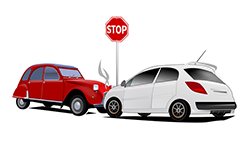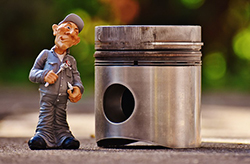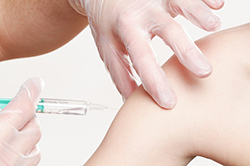 As many as one in five office workers fall prey to phishing incidents, but 14 percent of office workers don’t recognize phishing attacks. Learn more about phishing and how to combat attacks on your personal or company email.
As many as one in five office workers fall prey to phishing incidents, but 14 percent of office workers don’t recognize phishing attacks. Learn more about phishing and how to combat attacks on your personal or company email.
What is Phishing?
Phishing is a scam that cybercriminals use to gain access to sensitive information. It often occurs via email. The cybercriminal will send you an email that looks official but actually includes spyware, malware or other malicious software. When you open the link or download the file from the email, the criminals can access confidential information like bank account information, your social security number and other data. In many cases, you never know that your information has been compromised.
How to Recognize a Phishing Email
Phishing emails are designed to look authoritative so that you will open them and give the cybercriminal access to your computer. While these emails often look like they’re from a real company, you can usually recognize them via five signs.
-
- Sender Address
Before opening any email, look at the sender’s address. It may look similar to the official company’s address but could be slightly off. For example, it may use dot-net instead of dot-com or include a small spelling error like micrsoft or mircosoft.
- Sender Address
-
- Graphics
Cybercriminals do a great job of imitating the graphics of popular companies. However, the logo, colors or design may be slightly off in a small way.
- Graphics
-
- Spelling and Grammar Errors
Most companies and organizations employ a team of copywriters who write professional content that’s typically error-free. Emails with spelling or grammar errors, are possibly phishing schemes.
- Spelling and Grammar Errors
-
- Links
Email links are a cybercriminal’s primary phishing tool. You can hover your mouse over any links and verify that it matches the address of the email’s sender, a sign that the link is safe.
- Links
-
- Threats
Cybercriminals use threats and fear to manipulate consumers. They may say that you will lose money, face criminal charges or suffer another devastating consequence if you don’t open the email. In most cases, these threats are meant to incite fear and get you to comply with their complicit wishes.
- Threats
Steps That Protect Your Email
You can’t prevent cybercriminals from targeting you. However, you can take steps to protect yourself.
- Install spam filters and virus scans.
- Learn to recognize phishing emails.
- Only open email links from verified and trusted sources.
- Delete any emails that look suspicious.
- Train coworkers and associates to recognize phishing threats.
- Purchase cyber insurance that protects you if you are a victim of phishing.
You can’t stop cybercriminals from targeting your email, but you can use these tips to protect yourself and your data.

 It’s your turn to host the family holiday meal, and you’re prepared with the menu, table decorations and updated homeowners insurance. Is your kitchen safe? Consider 10 kitchen safety tips for your holiday meal.
It’s your turn to host the family holiday meal, and you’re prepared with the menu, table decorations and updated homeowners insurance. Is your kitchen safe? Consider 10 kitchen safety tips for your holiday meal. At the end of the year, many companies encourage employees to take accrued vacation time. While you may be tempted to forfeit your earned days off, vacations are important for nine reasons.
At the end of the year, many companies encourage employees to take accrued vacation time. While you may be tempted to forfeit your earned days off, vacations are important for nine reasons. After a severe hail storm or vehicle accident, your insurance company totals your car. The settlement amount they offer is fairly low, though. Use seven tips to negotiate your auto insurance claim.
After a severe hail storm or vehicle accident, your insurance company totals your car. The settlement amount they offer is fairly low, though. Use seven tips to negotiate your auto insurance claim. Jillian owns a small office supply store, and she sometimes asks her employees to make customer deliveries in their personal vehicles. She wonders if she needs to purchase a commercial auto insurance policy to cover any accidents or other related claims. Two questions help Jillian address this risk and determine what type of insurance is best for her needs, and they can help you, too, if you’re in a similar situation.
Jillian owns a small office supply store, and she sometimes asks her employees to make customer deliveries in their personal vehicles. She wonders if she needs to purchase a commercial auto insurance policy to cover any accidents or other related claims. Two questions help Jillian address this risk and determine what type of insurance is best for her needs, and they can help you, too, if you’re in a similar situation. Your home-based business gives you flexibility and fulfillment. However, you’re responsible for any damages you cause and any accidents that occur because of your business activities. Without the right liability insurance, you risk losing your business, home and personal assets. Evaluate your liability insurance options as you protect yourself.
Your home-based business gives you flexibility and fulfillment. However, you’re responsible for any damages you cause and any accidents that occur because of your business activities. Without the right liability insurance, you risk losing your business, home and personal assets. Evaluate your liability insurance options as you protect yourself. Most businesses carry some type of commercial insurance that’s designed to cover their equipment. However, what you may not realize is that commercial insurance is not always helpful when it comes to covering all of your bills. If you own a logging business, you’ve likely spent a significant portion of your budget on logging equipment. Without logging equipment insurance, you may find yourself to be at a financial loss should something happen to it.
Most businesses carry some type of commercial insurance that’s designed to cover their equipment. However, what you may not realize is that commercial insurance is not always helpful when it comes to covering all of your bills. If you own a logging business, you’ve likely spent a significant portion of your budget on logging equipment. Without logging equipment insurance, you may find yourself to be at a financial loss should something happen to it. What is General Liability Insurance?
What is General Liability Insurance?  Although you might not be aware of it, there are far-reaching benefits to positive thinking that can improve your health and help you with stress management. According to the Mayo Clinic, studies show that the personality traits of optimism and pessimism can have a direct impact on your well-being.
Although you might not be aware of it, there are far-reaching benefits to positive thinking that can improve your health and help you with stress management. According to the Mayo Clinic, studies show that the personality traits of optimism and pessimism can have a direct impact on your well-being. Every fall, your doctor or pharmacist probably asks you if you want a flu shot. This important vaccination can prevent you from getting the flu. Learn more about who should get a flu shot as you decide if it’s the right choice for you.
Every fall, your doctor or pharmacist probably asks you if you want a flu shot. This important vaccination can prevent you from getting the flu. Learn more about who should get a flu shot as you decide if it’s the right choice for you.



